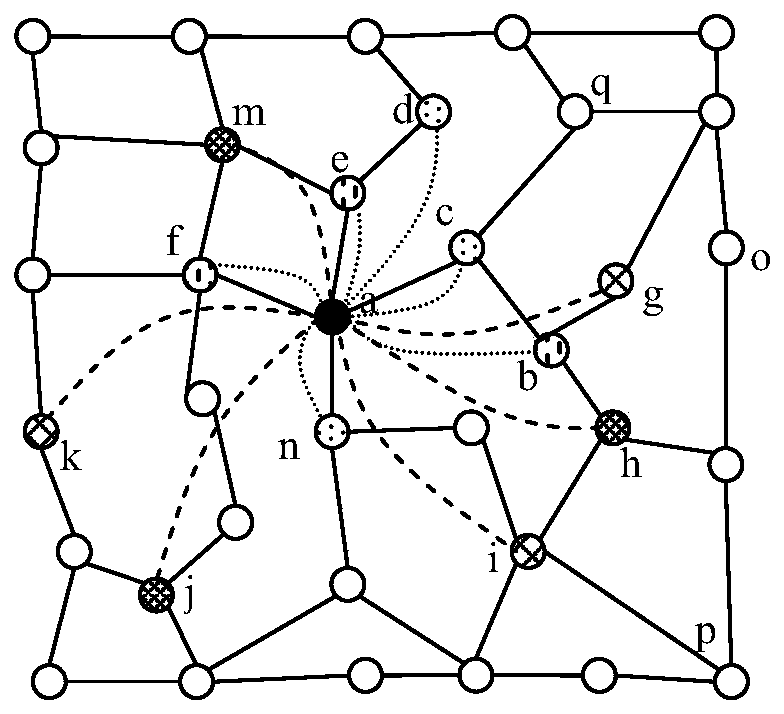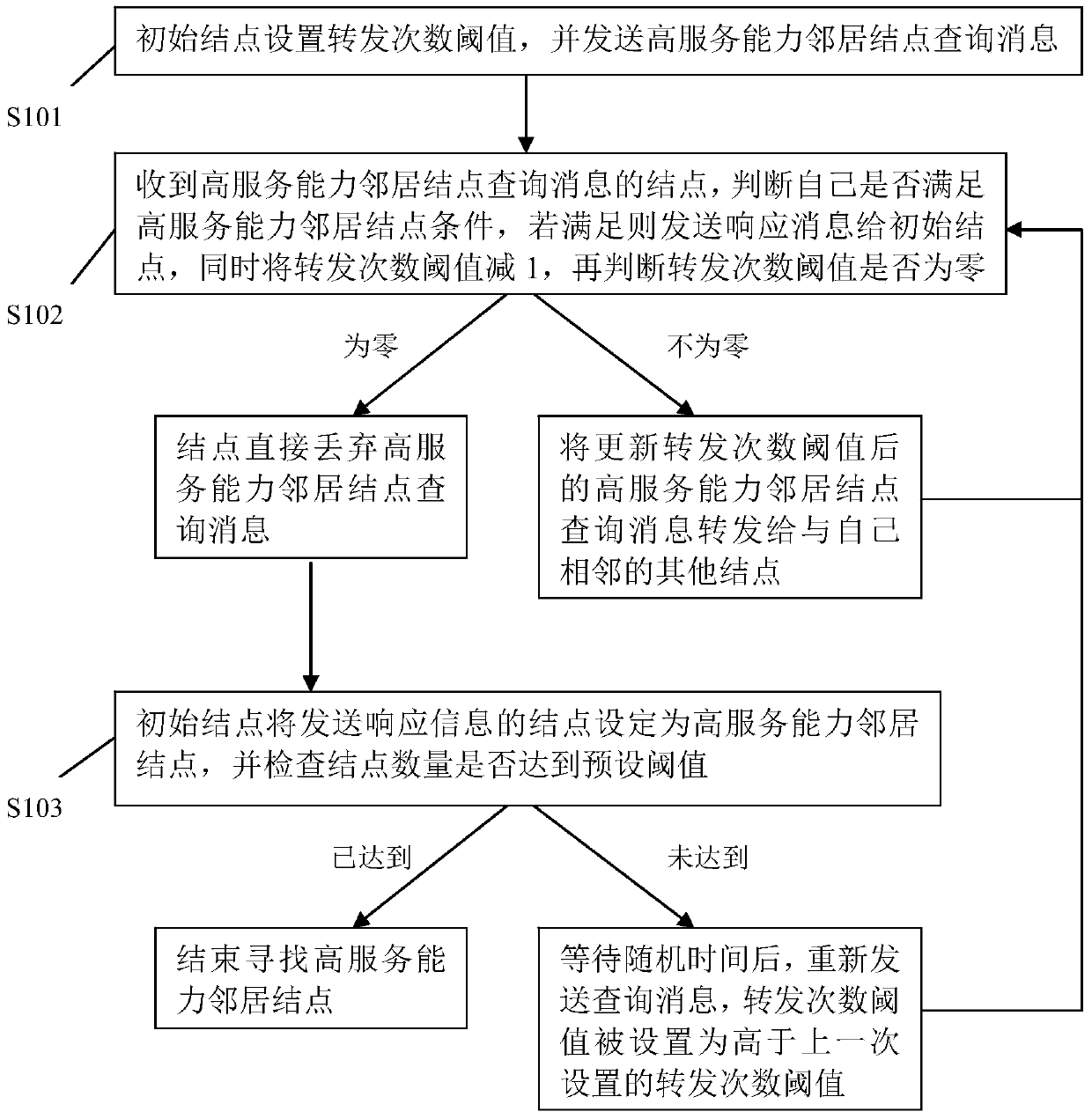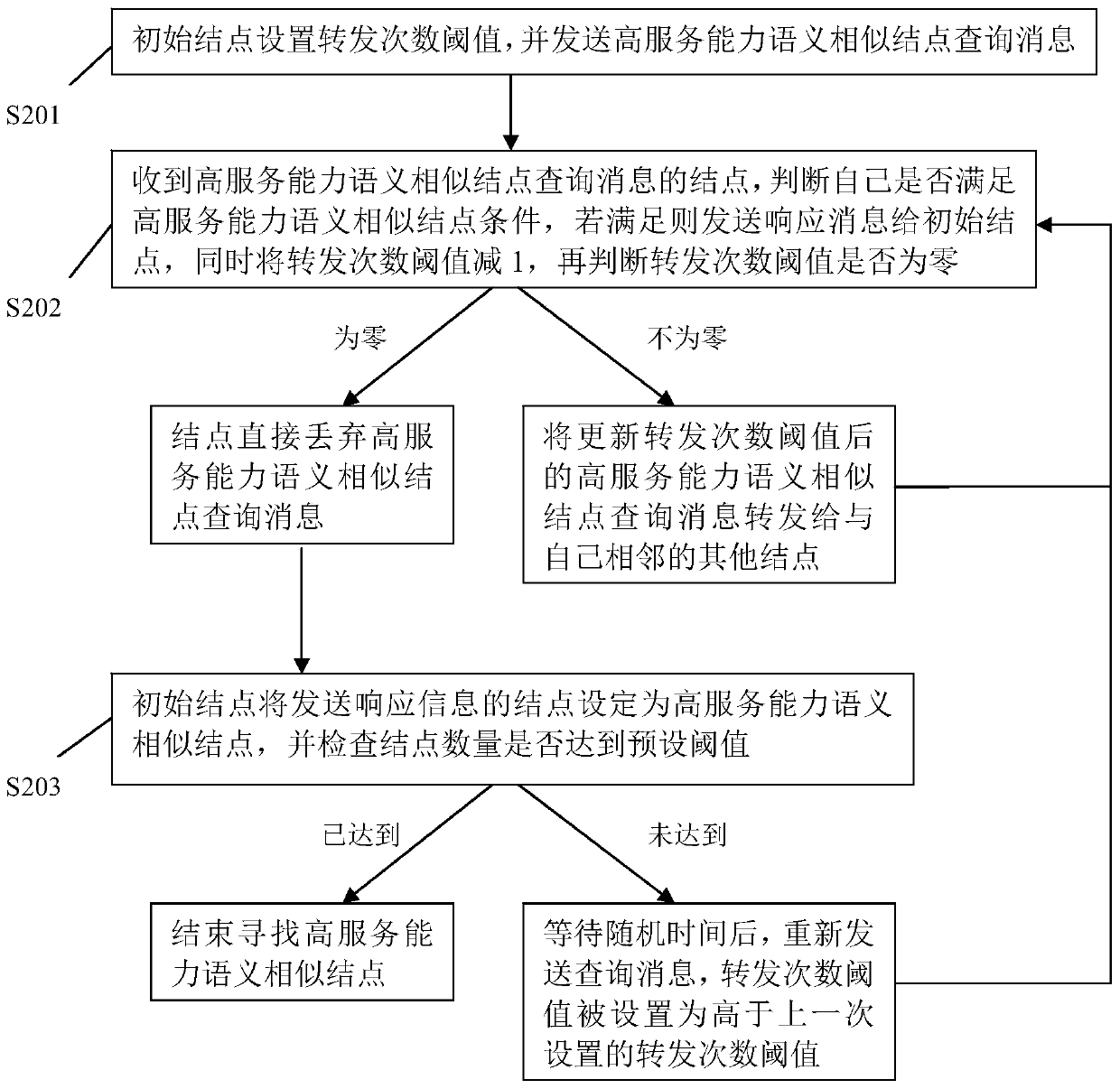Peer-to-peer network based on differentiated service and resource positioning method
A technology that distinguishes between services and peer-to-peer networks, applied in wireless sensor networks and network fields, can solve problems such as complex P2P system resource management and P2P network resource management problems, and achieve efficient and convenient positioning, optimized working mode and efficiency, and topology structure clear effect
- Summary
- Abstract
- Description
- Claims
- Application Information
AI Technical Summary
Problems solved by technology
Method used
Image
Examples
Embodiment 1
[0090] Such as figure 1 As shown, this embodiment discloses a peer-to-peer network based on differentiated services, including multiple nodes such as a, b, c, d, e, f, g, etc., as shown in Table 1, each node maintains the following There are two types of topologies:
[0091] High-quality node topology, including high-serving capability neighbor node topology and high-serving capability semantically similar node topology; each node in the high-serving capability neighbor node topology and the node maintaining the topology satisfy high Neighbor node condition of service capability; high service capability semantically similar node condition is satisfied between each node in the high service capability semantically similar node topology and the node maintaining the topology; high service capability neighbor node condition is two The network distance between nodes is lower than the first preset distance, the broadband speed is higher than the preset speed, and the number of resou...
Embodiment 2
[0140] This embodiment discloses a resource location method based on the peer-to-peer network described in Embodiment 1 above, which is applied in such as figure 1 In the peer-to-peer network shown, the storage resources of the nodes in the network are shown in Table 2:
[0141] Node ID shared resource name Node ID shared resource name a R1_1, R1_4, R1_5, R2_1 i R1_1, R1_2, R1_5, R2_1 b R2_1, R2_2, R2_3, R3_2 j R1_2, R1_4, R1_5, R3_1 c R1_3, R2_2, R2_4, R3_3 k R1_1, R1_3, R1_5, R5_1 d R2_1, R2_2, R2_4, R3_2 m R1_1, R1_4, R1_6, R2_1 e R1_1, R2_3, R2_5, R3_5 n R2_1, R2_3, R2_4, R3_4 f R2_2, R2_3, R2_4, R3_2 o R2_1, R2_2, R2_3, R3_2 g R1_1, R1_2, R1_5, R3_1 p R1_3, R1_5, R1_6, R4_1 h R1_1, R1_3, R1_5, R5_1 q R1_1, R1_5, R1_6, R5_1
[0142] Table 2 Schematic diagram of the storage resources of the nodes in the peer-to-peer network
[0143] Such as Image 6 As shown, this resource location ...
PUM
 Login to View More
Login to View More Abstract
Description
Claims
Application Information
 Login to View More
Login to View More - R&D
- Intellectual Property
- Life Sciences
- Materials
- Tech Scout
- Unparalleled Data Quality
- Higher Quality Content
- 60% Fewer Hallucinations
Browse by: Latest US Patents, China's latest patents, Technical Efficacy Thesaurus, Application Domain, Technology Topic, Popular Technical Reports.
© 2025 PatSnap. All rights reserved.Legal|Privacy policy|Modern Slavery Act Transparency Statement|Sitemap|About US| Contact US: help@patsnap.com



